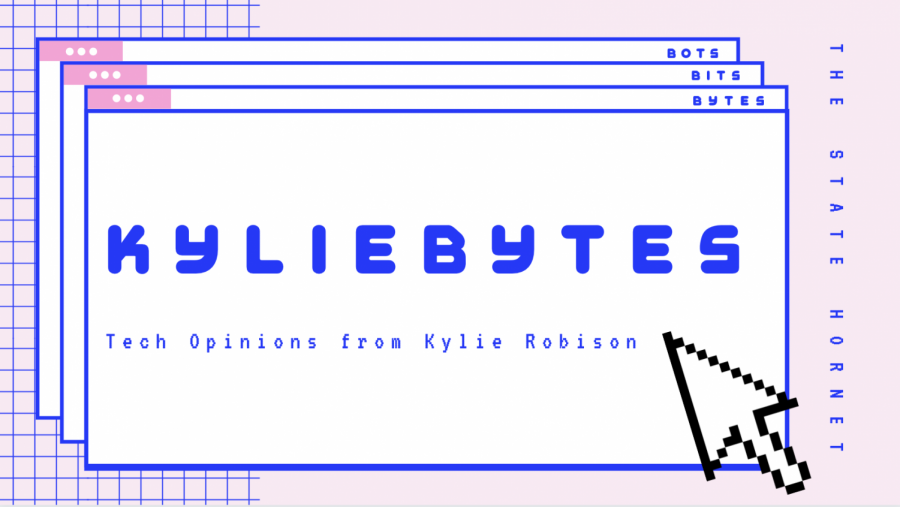KYLIEBYTES: What can we do about the digital divide?
14.5 million Americans cannot access the Internet
September 9, 2020
I’m Kylie Robison and this is KYLIEBYTES, a column where I talk about technology and its impact on society. Follow me on Twitter @kylie_robison for more.
The idea of Wi-Fi being a fundamental right was once laughable, but now that almost all operations are virtual, millions of students are struggling to obtain their education and internet access is more essential than ever.
According to the U.N., almost half of the world’s population has no access to the internet. This is especially prevalent in rural America, where the Federal Communications Commission estimates one in four students are unable to learn online, and overall, 14.5 million people still lack service.
We need to move forward with universal broadband, fast, or we risk widening the digital divide at a historic rate.
Universal broadband is the idea that the government assumes responsibility for providing reliable Wi-Fi, and the digital divide refers to unequal access to technology and the education required to understand and utilize it.
California has been working hard to lead the way on universal broadband. Legislators have introduced Senate Bill 1130, which is working to deploy high-speed, fiber-optic networks in California, and Assembly Bill 570, which would prioritize upgrading the existing, slower networks to save costs.
Many schools, such as Sacramento State, are providing solutions such as long-term laptop rentals and drive-in Wi-Fi to help aid those who need it most. These solutions are only temporary, and it’s important that we figure out long-term answers, because the coronavirus pandemic is showing few signs of improvement.
Closing the digital divide starts with universal broadband. Unequal access to education comes in many forms, but when we’re ordered to stay inside, high-speed internet access becomes the most essential tool. The longer we wait to provide access, the farther we fall behind on closing the divide.
In turn, universal broadband starts with implementing fiber networks. The problem with AB 570 is that it pushes to spend millions on painfully slow network speeds – 25/3 Mbps for low-income and rural areas according to the Electronic Frontier Foundation – when online learning requires much faster rates. Implementing such networks would be a waste of money and deprive the citizens of California of the essential infrastructure they pay for.
The modern solution, fiber networks, transmit large volumes of traffic at far higher speeds than the traditional copper cabling that AB 570 is proposing to implement. With a statewide tax rate of 7.25% in California, there is no reason our government cannot afford to provide this necessary infrastructure. It could be because they spent $57,000 on a fake Christmas tree, loaned one of its city executives $1.4 million to buy a luxury home or spent $19.7 million on artwork during an 11-year period, according to The Californian.
As the nation’s tech capital, California has only installed fiber-optics for 33.9% of its population.
Currently, Google Fiber’s nationwide expansion plans to be $3,000–$8,000 per home. Let’s do the math. There are 11,502,870 homes in the state of California. If 66.1% of homes do not have installed fiber-optics, it would cost California between $22 billion and $60 billion to cover 100% of its citizens. For reference, California spends more than $320 billion per year.
Not every Californian requires high-speed internet access. The point is, it’s entirely possible for every citizen to have equal access, and it’s necessary to provide that opportunity for all.
So why exactly are we stalling on universal broadband? Many students are unable to access their right to education without dependable Wi-Fi. The coronavirus is showing no signs of subsiding, and a once ridiculous proposition quickly became as serious as the pandemic itself.
As a student, I’m tired of politics and lobbyists. My peers shouldn’t have to sit in a parking garage to attend our class, and that’s really all there is to it. Obtaining an equal education is already affected by economic status to a great extent. In already unfair circumstances, the digital divide feels like kicking people while they are down.
The world is changing fast around us, and adapting to this new normal is hard enough. High-speed internet access is no longer a luxury, it is the only way to avoid the coronavirus, continue your education, and find a career. Everyone deserves equal access to reliable broadband, and time is running out.




































































































































